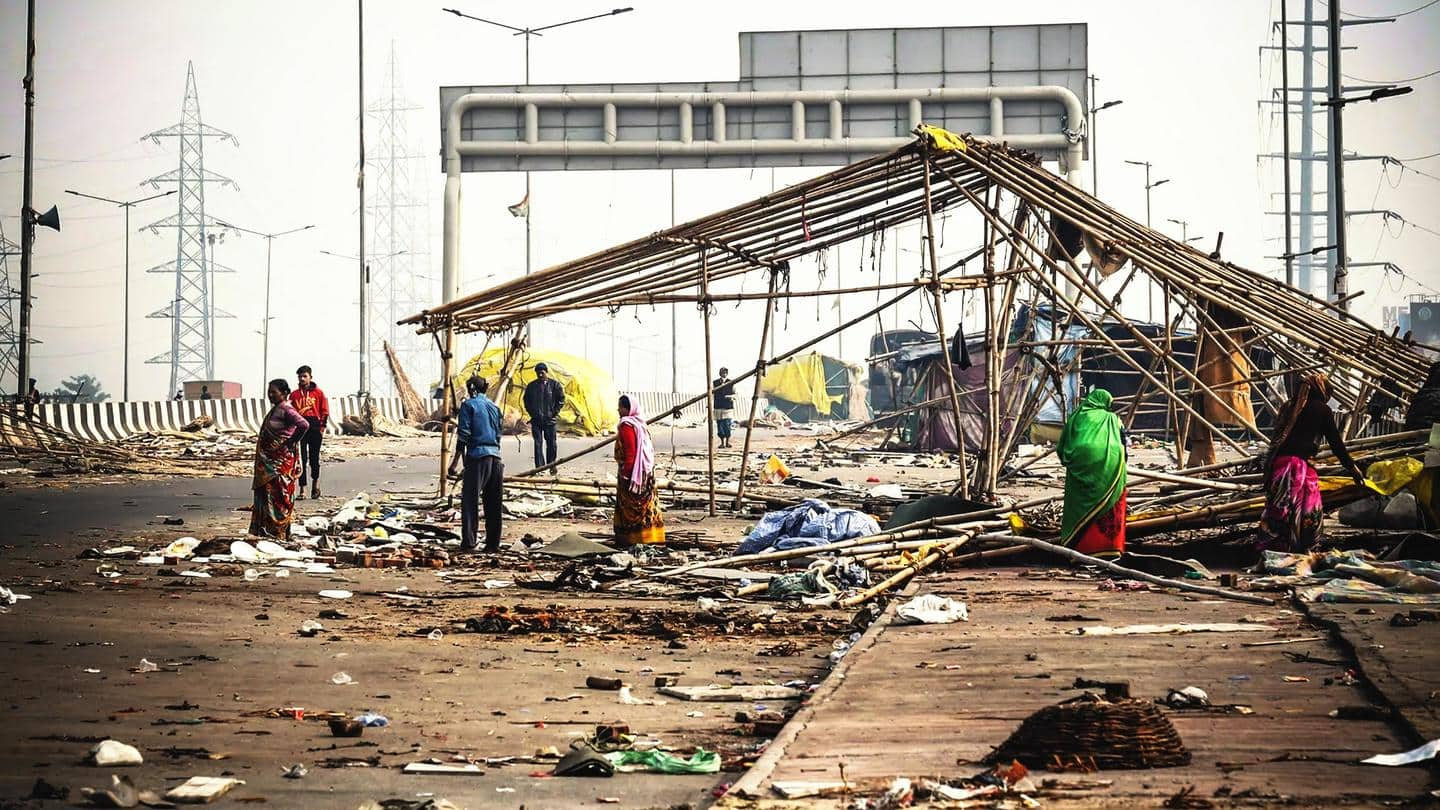
Farmers protest: Why Singhu, Ghazipur borders will open by January
What's the story
The Ghazipur and Singhu border crossings of Delhi will be reportedly open to commuters only from January despite the farmers' protest there ending.
The delay is due to the removal of barricades and inspection work, officials of the National Highways Authority of India (NHAI) told Livehindustan.
The Ghazipur border separates Delhi and Ghaziabad, while the Singhu border connects Delhi and Haryana.
Context
Why does it matter?
For over a year, Farmers protesting against the central government's agricultural laws had camped along Delhi's borders.
The protest and the police barricading added to the woes of commuters who faced traffic snarls at alternate routes.
Now that the agitation has concluded, most protesters have left Delhi's borders and returned home.
However, officials estimate that cleaning the borders will take at least two weeks.
Information
What is the scenario in Singhu border?
The Singhu border has been cleared of concrete barriers and other obstacles, said a senior police officer to PTI. The road, however, is not yet open to traffic. The barricades were built to keep protesting farmers from reaching the national capital.
Details
Several national highways will be opened for public
At the Delhi-Ghaziabad border, portions of the Delhi-Meerut Expressway (NH9 and NH24) and National Highway 44 at the Singhu border will be opened to the public.
"We will start work once the farmers have fully retreated from sites," said one NHAI official to Hindustan Times.
A lot would depend on the continuing construction restrictions in Delhi, due to air pollution, said another NHAI official.
Quote
'Repair works will be needed'
"No such routine activity has happened on highways along Ghazipur аnd Singhu for more than a year now because of the farmers' protest. Our latest preliminary report suggests repair works will be needed," the official said.
Impact
Protest hampered movement of vehicles
Since last year the farmers have been protesting in several sites, hampering the movement of several vehicles.
The protest forced the closure of the Ghaziabad-Delhi carriageway, forcing commuters to spend an extra 40-50 minutes on the road to get to their destinations.
Several commuters stated that the city's primary exit into Punjab was stopped near the Singhu border, causing a delay of 45-60 minutes.
History
A glimpse of the farmers' protest
Farmers have been protesting against the controversial bills for over a year.
In November 2020, thousands of farmers from Punjab, Haryana, and Uttar Pradesh occupied the Singhu, Ghazipur, and Tikri borders of Delhi.
They demanded the repeal of the three farm laws, which were finally removed earlier this month during Parliament's Winter Session.
Farmers have since dismantled their settlements and vacated the borders.
Details
What were the three farm laws?
In June 2020, the government issued three farm laws, which were passed by Parliament in September.
The following were the three bills aimed at transforming India's agriculture sector:
The Farmer's (Empowerment and Protection) Agreement on Price Assurance and Farm Services Act, 2020.
The Farmers' Produce Trade and Commerce (Promotion and Facilitation) Bill, 2020.
The Essential Commodities (Amendment) Bill, 2020.